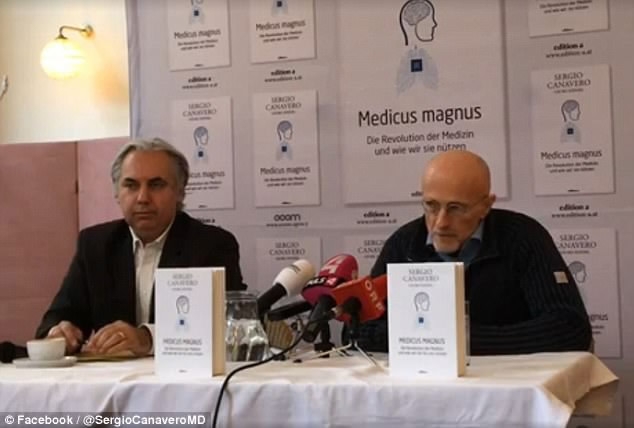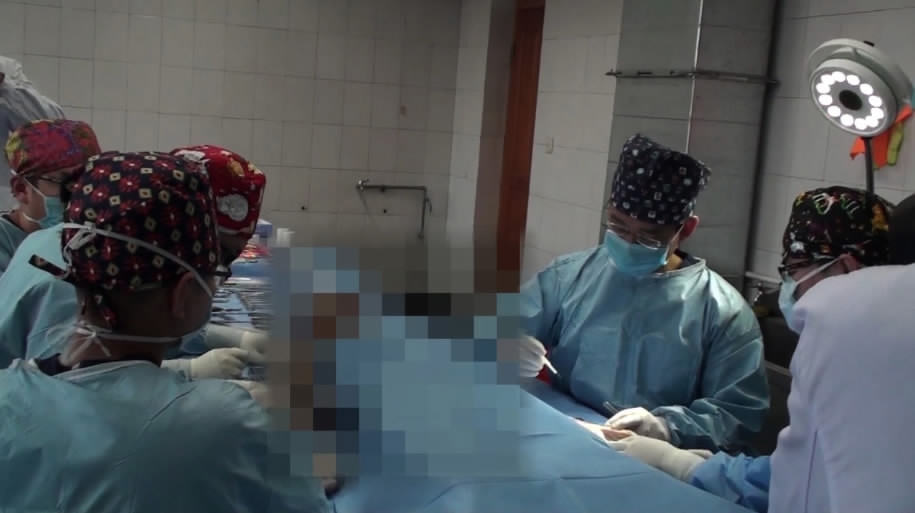
Tech & Sci
16:30, 25-Nov-2017
World's first volunteer of head transplant fails to accept the surgery for a ‘lack of funds from Russia’
CGTN

Valery Spiridonov of Russia, who volunteered to become the first person in the world to undergo a head transplant in the hope to attach his head to a new body, has said that "a lack of funds from Russia" was allegedly behind his failure to undertake the surgery.
His remarks came days after Italian doctor Sergio Canavero announced that his collaborator, orthopedic surgeon Ren Xiaoping from China’s Harbin Medical University had carried out the world’s first human head transplant on a cadaver following an 18-hour operation in China.

Valery Spiridonov /The Paper Photo
Valery Spiridonov /The Paper Photo
"Russia is unwilling to provide financial supports to Canavero, giving consideration that his research is not prudent enough and proper communication and teamwork are also in absence," the 33-year-old Russian computer scientist who suffers from Werdnig-Hoffman disease told the Paper on Thursday, explaining the possible reasons of his being excluded from the pioneering medical move.
In 2015, Canavero once announced that he would carry out the world’s first human head transplant on Russian volunteer Spiridonov with a muscle-wasting disease. The candidate, however, was changed into an unidentified "Chinese patient" since the latter half of 2016 by the Italian neurosurgeon, who is part of team that carried out a head transplant on a rat in a practice run in May ahead of the controversial human experience.

Sergio Canavero announced that the world's first human head transplant had been carried out on a cadaver in China at a press conference in Vienna on November 17. /Facebook Photo
Sergio Canavero announced that the world's first human head transplant had been carried out on a cadaver in China at a press conference in Vienna on November 17. /Facebook Photo
"He [Canavero] cannot get the funds that he wanted for the surgery from Russia,” the wheelchair reliant claimed, adding though he had no idea of why the operation was performed in China, he knew why Russia was removed from Canavero’s agenda.
The recent surgery, which saw spinal cord and blood vessels of the head of one corpse reconnected with those on another, is regarded by Spiridonov as simply a "preparatory experiment" of the human head transplant instead of a real "success", since it "cannot ensure the normal activity of the spinal nerves as well as the functioning of brain," the handicapped Spiridonov further told the Paper in the interview.

Doctor Ren Xiaoping and his team perform the head transplant on a corpse. /CGTN Photo
Doctor Ren Xiaoping and his team perform the head transplant on a corpse. /CGTN Photo
His remarks are partly in line with Chinese doctor Ren Xiaoping, who claimed the head transplant on living humans is still some way off despite completion of such procedure between two cadavers.
Related story

SITEMAP
Copyright © 2018 CGTN. Beijing ICP prepared NO.16065310-3
Copyright © 2018 CGTN. Beijing ICP prepared NO.16065310-3